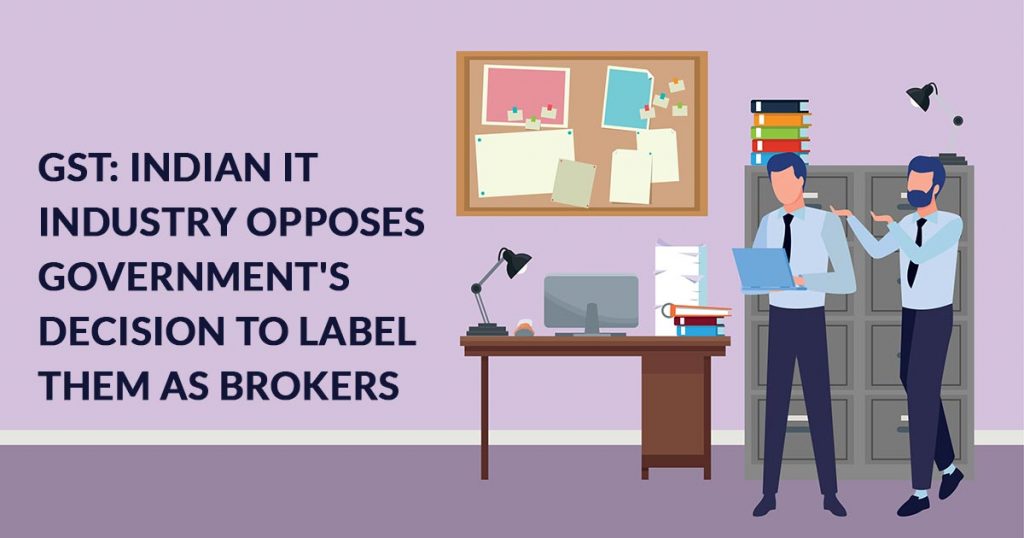
Recently the Government of India (GOI) has notified that 18 per cent GST would be leviable on Information Technology (IT) and Information Technology enabled Services (ITES) companies that provide broker and intermediary services to the offshore clients.
In this regard, many outsourcing units and BPOs have questioned the government’s regulation and challenged its constitutional validity.
Back offices of many BPOs and KPOs are already combating the margin pressure and now this new regulation, brought in on 18th July, which attracts 18% GST from intermediaries and brokers is summing up the pressure on such corporate bodies. The BOPs and KPOs are claiming that these services come under the category of exports and should not be categorized as broker services and come in the purview of GST.
Under the VAT regime, these Indian entities did not attract any tax liability. Even under the GST regime, these companies would get refunds for tac credits until December 2018.
The government circular gets extended, elaborating why GST is leviable on some IT/ITES services provided to foreign-based customers. GOI explains that these services cannot be considered as exports as these are merely brokerage services.
“The recent circular on intermediaries means that several back end services rendered to foreign service recipients would attract 18 per cent GST due to the place of provision of such services. We have challenged the constitutional validity of the place of provisions for intermediaries on various grounds in Gujarat High Court and the arguments would cover relief for different players including the services mentioned in the circular,” said Abhishek A Rastogi, a partner at Khaitan & Co.
However, officials of Income Tax department initiated following the authority of advance rulings (AAR) in December, as a result of which indirect tax department began sending notices to some IT or ITES companies who are engaged in catering support services to offshore clients, asking for 18 per cent GST on payment received on convertible foreign exchange.
Industry trackers said if BPOs are treated as commission agents and brokers, their services would not be considered as exports, so their revenues would attract taxes because the only exporter is free from domestic taxes and can claim some benefits. Therefore, the services catered by Indian KPO and BPO companies to foreign companies would not be considered as exports and so will attract GST in India.
“While the circular is not binding on the taxpayer, it’s binding on the tax officials; which means that many companies will stop getting refunds,” a person advised one of the IT companies over the issue.
Initially, an industry body Assocham and an IT lobby group put forth their concerns about the future tax liability which would germinate because of the government’s new regulation. Under the VAT regime, an intermediary was only a commission agent or broker but the company engaged in providing support services to an MNC was not considered as an intermediary.
Read Also: Goods & Services Tax Impact on the Indian IT Industry
At present, India has a vast outsourcing market of about $50 billion per year. The government’s decision is going to affect around $13 bn outsourcing industry which is already going under margin pressures. According to one senior tax official, many BPOs and KPOs have already shifted to the Philippines in last some years and such a decision is going to exert many more BPO and KPOS to move to other countries.
In the recent past, the companies and tax officials behested government’s attention over the issue. They sought government approval on amending the law so that the service supplied by Indian entities to the overseas customers can be nil-rated or non-taxable.









